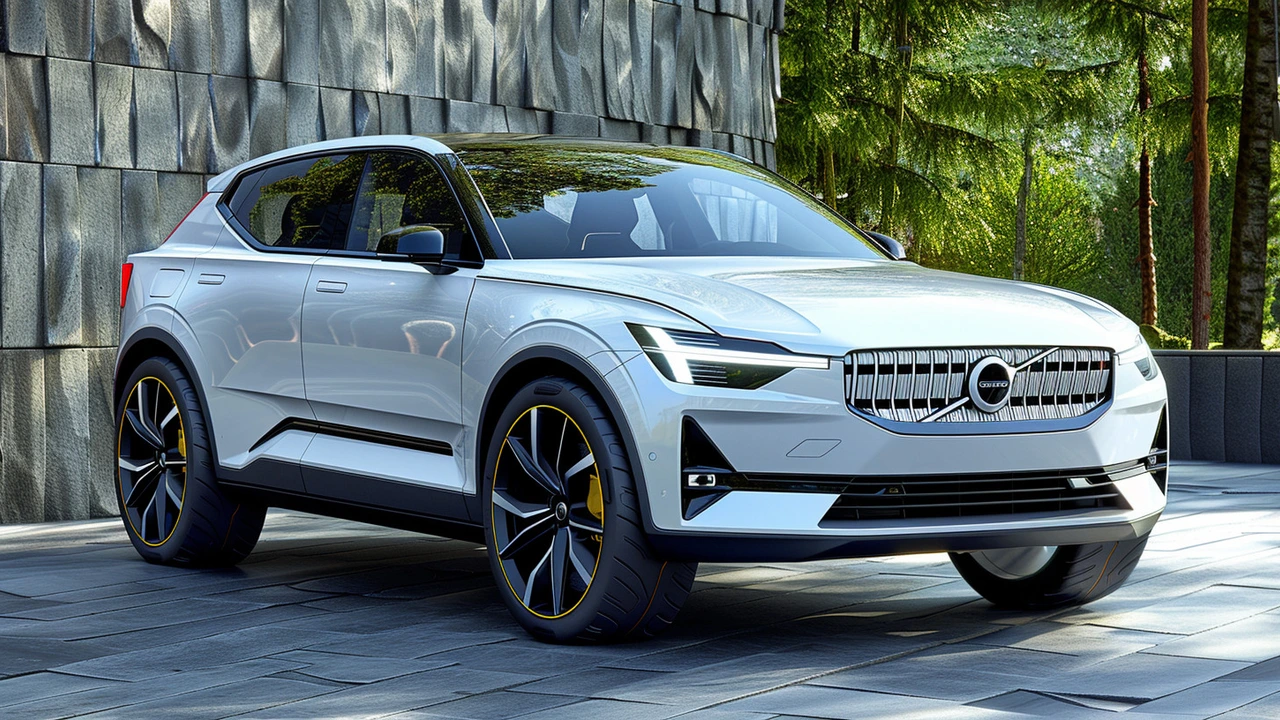Volvo Transitions Electric Vehicle Production to Belgium to Sidestep Potential EU Tariffs
Volvo Car, a prominent player in the automotive industry, is strategically relocating its electric vehicle (EV) production from China to Belgium. This move comes in anticipation of potential tariffs the European Union (EU) might impose on imports subsidized by the Chinese government. The decision stems from the EU's ongoing investigation, which started in October 2022, to determine if fully electric cars manufactured in China are benefiting from distortive subsidies, a situation that could lead to additional tariffs being levied.
The potential imposition of these tariffs has prompted Volvo, a company majority-owned by China's Geely, to reconsider its production plans. Originally, Volvo considered halting the sales of Chinese-built EVs destined for Europe if the tariffs were introduced. However, instead of pulling the plug on these sales, the company has opted to shift the production of its EX30 and EX90 models from China to Belgium. This strategic maneuver will allow Volvo to continue selling these models in Europe without facing the financial strain of additional duties.
Production Dynamics and Strategic Shifts
The decision to move production isn't solely about avoiding tariffs. It aligns with a broader strategy that aims to manufacture cars closer to their intended markets. A Volvo spokesperson emphasized that this approach is designed to build cars where they are to be sold as much as possible. This strategy not only mitigates the risk of potential tariff impositions but also enhances the logistics and responsiveness of the company to market demands.
As part of this strategic pivot, Volvo is also considering moving the production of certain models destined for the UK to Belgium. The production of the EX30 model in Belgium is scheduled to commence in 2025. Meanwhile, the EX90 model is currently being manufactured in the United States, rather than China, further showcasing Volvo's adaptability to geopolitical and economic landscapes.
The EU's anti-subsidy investigation, which mirrors its broader concerns about relying too heavily on China for materials and products critical to the green transition, can last up to 13 months, with provisional anti-subsidy duties potentially being imposed nine months after the probe begins. The investigation is part of a larger constellation of strained relations between China and the EU, fueled by China's close ties with Moscow following Russia's invasion of Ukraine. This geopolitical tension has intensified the EU's efforts to reduce its dependence on China.
Geopolitical Context and Regulatory Landscape
The backdrop of this strategic relocation involves complex geopolitical dynamics. The relationship between the EU and China has been tense, particularly as Beijing has maintained closer relations with Moscow, especially after Russia's incursion into Ukraine. The EU's strategy to reduce reliance on Chinese imports is partly driven by these geopolitical considerations, as well as by the need to ensure the stability and sustainability of its green transition initiatives.
By moving production to Belgium, Volvo not only navigates the murky waters of potential tariffs but also aligns itself with the EU's goals of localizing production and reducing dependency on non-EU countries. This move could serve as a precedent for other automakers facing similar geopolitical and economic pressures. As the automobile industry shifts towards more sustainable and electric options, the location of production facilities will likely become a critical factor in global automotive strategies.
Future Implications for the Automotive Industry
The shift in Volvo's production strategy could signal a broader trend in the automotive industry, where companies may increasingly opt to relocate their production facilities to mitigate risks associated with international trade policies and geopolitical tensions. The focus on localizing production closer to key markets might become a defining feature of the automotive sector, particularly as companies strive to meet regional regulatory requirements and reduce carbon footprints associated with long-distance shipping.
Moreover, this move by Volvo emphasizes the importance of strategic agility in the face of regulatory uncertainties. Companies that can swiftly adapt to changing regulations and geopolitical landscapes will likely have a competitive edge in the evolving global market. As the EU continues its investigation and other regulatory bodies worldwide scrutinize international trade practices, the ability to pivot production strategies will be crucial for sustaining growth and maintaining market share.
Volvo's decision to relocate production to Belgium ahead of potential EU tariffs reflects a proactive approach to navigating complex economic and political challenges. As production shifts and regulatory landscapes evolve, companies will need to remain vigilant and adaptable, ensuring they can meet consumer demand while complying with regional trade policies. The ability to preemptively address such challenges, as Volvo has demonstrated, will be key to thriving in the competitive global automotive market.
Ultimately, the transition of production from China to Belgium showcases Volvo's commitment to maintaining a strong presence in the European market despite external pressures. This strategic move not only shields the company from potential financial impacts of EU tariffs but also aligns with broader industry trends towards localized production and sustainability. As the automotive industry continues to evolve, Volvo's approach may well serve as a model for other manufacturers navigating the complex interplay of global trade, regulation, and market demands.


Akshat goyal
June 10, 2024 AT 17:27anand verma
June 11, 2024 AT 05:47Amrit Moghariya
June 12, 2024 AT 23:52shubham gupta
June 13, 2024 AT 04:44Gajanan Prabhutendolkar
June 14, 2024 AT 03:16ashi kapoor
June 15, 2024 AT 20:41Yash Tiwari
June 16, 2024 AT 00:26Mansi Arora
June 16, 2024 AT 00:48Amit Mitra
June 17, 2024 AT 03:23sneha arora
June 18, 2024 AT 07:13Sagar Solanki
June 19, 2024 AT 03:41Siddharth Madan
June 20, 2024 AT 22:54Nathan Roberson
June 21, 2024 AT 06:27